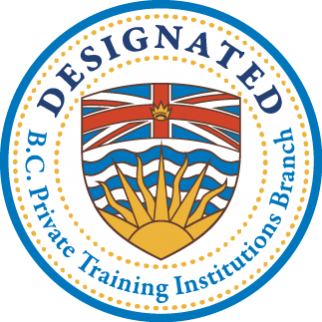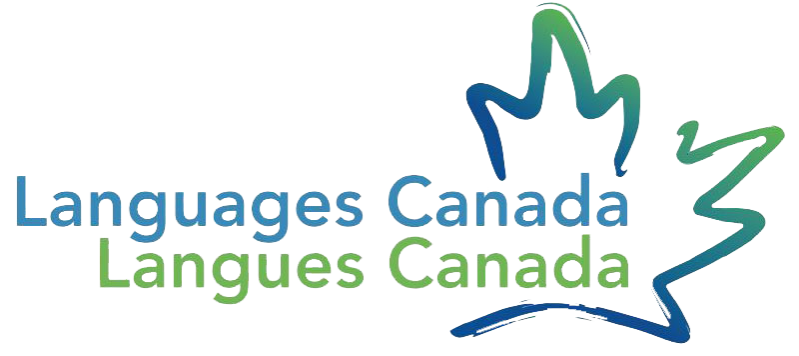Add French To Your Life
Discover an immersion French-learning experience in Vancouver!
you will become part of a unique community of people interested in the French language and French-speaking cultures.
Why Choose DEA French Programs?
We create an atmosphere that encourages all students equally in self-expression.
We build students’ vocabulary for formal and informal situations by increasing communicative
skills through appropriate question and answer techniques and presentations by eliciting students to self-correct.
A wide range of levels
We offer a wide range of levels from Beginner to Advanced French classes. The DEA Education Center organizes its teaching on the most modern teaching methods.
Schedules that fit your time zone
Our courses are offered with flexible schedules through group classes and private tutoring.
High quality of class
We offer quality teaching promoting excellence with a dynamic method of teaching French and recognized high-quality programs.
careful student management
Your teacher will give you a customized student progress report. The report will help guide you towards achieving your french learning goals.
Class Type / level
Discover our selection of flexible and dynamic French courses and programs to suit students of different age groups, with a variety of learning goals.
| Class Type | |||
|---|---|---|---|
| Small group class (in person) | |||
| One to One class (in person) | |||
| On-line class | |||
| THE DELF AND DALF test | |||
| Junior class (in person) | |||
- General class : students must be a mature student (19 years or above)
- Junior class : students from Preschool to Grade 12
| Class Level | DELF/DALF level |
|---|---|
| Introductory & Elementary – Basics | DELF A1 |
| Pre-Intermediate | DELF A2 |
| Intermediate | DELF B1 |
| Upper-Intermediate | DELF B2 |
| Advanced | DALF C1/C2 |
- Students may take 4 weeks or longer to progress to the next level.
- Progression is not guaranteed, and your ability to level up will depend on your attendance, completion of homework, personal aptitude, and overall commitment to your studies.
Study Schedules
| MONDAY TO FRIDAY | ||
|---|---|---|
| Full-Time Intensive Schedule | 9:00~14:30 | |
| Full-Time Schedule | 9:00~13:30 | |
| Full-Time Schedule | 9:00~11:30 | |
Private Language Classes
Private (One-on-One)
Please contact us for more information.
| TUITION FEES | |
|---|---|
| Full-Time Intensive | $1200CAD |
| Full-Time | $1000CAD |
| Part-Time | $800CAD |
| Registration fee | $150CAD |
| Material fee | $80CAD |
| Apply Now | |
- All pricing is in Canadian dollars.
The DELF and DALF are six separate diplomas issued by the French Ministry for National Education to certify the French language skills. These diplomas are valid for life. DELF and DALF certificates are developed by the Centre International d’Etudes Pédagogiques (CIEP) and reflect the six levels of the Common European Framework of Reference for Languages (CEFRL).
Levels
- Listening: If you speak slowly and intermittently, you can understand
frequently used, easy words and expressions about yourself, your family, and
specific, immediate environments. - Reading: Can recognize very short words, phrases, and sentences, such as those found in advertisements, posters, and catalogs.
- Oral conversation: You can have a short conversation if the other person
repeats it slowly and helps you express what you want to say. You can ask or answer questions about short topics or immediate needs. - Oral Writing : You can use easy expressions and sentences to talk about where you live or the people you know.
- Writing: You can express travel stories, etc. on postcards. You can describe people in surveys, and you can write names, nationalities, addresses, etc. in hotel listings.
- Listening: I can understand expressions and words about things close to me, such as myself, my family, the environment, and my job. You can recognize advertisements and short, clear messages.
- Reading: Can read short text. You can obtain necessary information from special-purpose materials such as advertisements, manuals, menus, and timetables, and read short personal letters.
- Oral conversation: You can exchange opinions on familiar topics, activities, etc. while exchanging simple and direct information in familiar simple tasks. Even if your language skills are not high enough to carry on a conversation, you can still communicate briefly.
- Oral Writing: Can write a series of expressions to describe things about family or other people, my environment, school, or current or recent professional activities.
- Writing: You can write short memos, messages, and letters.
- Listening: If you talk about familiar topics such as work, school, leisure, etc. clearly in standard language, you can understand the main points. If you speak slowly and clearly, you can understand radio and television programs about interests, occupations, and current events.
- Reading: You can understand texts related to your job through frequently used expressions. Can understand expressions of facts, feelings, and hopes in personal letters .
- Oral conversation: You can handle most situations that may arise when
traveling to an area where the language is spoken. Can participate in conversations on familiar topics without preparation. - Oral Writing: Can briefly describe one's experiences, facts, dreams, hopes, goals, etc. I can explain my views, plans, etc. and briefly explain why. I can talk about the contents of books and movies, their plots, my reactions, etc.
- Writing: I can write a familiar story. You can write personal letters expressing your experiences and feelings.
- Listening: You can understand long speeches, lectures, and even complex
arguments if the topic is fairly familiar . I can understand most TV news,
current affairs programs, and standard language movies. - Reading: You can read articles and reports about current events in which the authors take a particular point of view. Can understand modern prose literary works.
- Oral conversation: Daily conversation with native speakers is fully possible. I can actively participate in conversations in familiar contexts while explaining
and supporting my views . - Oral Writing: Can write clearly and in detail about various topics of interest .
You can present the pros and cons of various prophets and explain your
perspective on current affairs. - Writing: I can write clearly and in detail about various topics of interest . You can write an essay or report that conveys information or presents evidence for and against a particular point of view. You can write letters that emphasize the personal significance of experiences and events.
- Listening: Can understand long speeches with ambiguous structures and
relationships . I can understand TV programs and movies without much difficulty . - Reading: Can understand long, complex, factual or literary texts with good discernment of writing styles . I can understand specialized articles and long professional manuals that are unrelated to my field .
- Oral conversation: I can express myself naturally without having to look for
explicit expressions often . Can use language flexibly and effectively for social and business purposes. I can express my thoughts and opinions accurately and systematically , and I can skillfully relate what I say to what other speakers say. - Oral Writing: Can write about complex topics clearly and in detail, integrating subtopics, developing details, and concluding with an appropriate conclusion .
- Writing: I can express myself in clear, well organized writing, expressing my point of view in detail . You can write letters, essays, or reports on complex topics , emphasizing the points you think are important . You can choose a writing style that is appropriate for your readers.
- Listening: If you give yourself some time to adjust to the accent, you will be able to understand anything spoken live or broadcast without difficulty, even when a native speaker is speaking quickly .
- Reading: Can comfortably read almost all types of text, including abstract, structurally and linguistically complex texts such as manuals, technical articles, and literary works .
- Oral conversation: Can participate in any conversation or discussion without
any difficulty and is sufficiently familiar with idiomatic expressions and colloquialisms. I can express myself naturally and convey even subtle differences in meaning accurately. When a problem arises, he reorganizes his words so gently that others barely notice. - Oral writing: Able to explain or argue clearly and eloquently using a tone appropriate to the context and an effective logical structure so that the listener can easily understand and remember the main points .
- Writing: Can write clearly and eloquently in an appropriate style. You can write complex letters, reports, or articles that present evidence in an effective logical structure that makes it easy for readers to understand and remember key points. Can summarize and criticize professional writings or literary
works.
French
We offer a wide range of levels from Beginner to Advanced French classes. The DEA Education Center organizes its teaching on the most modern teaching methods. Our courses are offered with flexible schedules through group classes and private tutoring.
Children are naturals at learning a language: their lack of inhibition and adaptability makes it easier for them to pick up sounds and words. As a parent, you are giving your child a life-long advantage by exposing them to a foreign language at an early age.
We offer quality teaching promoting excellence with a dynamic method of teaching French and recognized high-quality programs which will guarantee your child good opportunities or further studies and to obtain diplomas.
When taking classes of French at DEA Education Center, your child gets access to contents and objectives which lead to the ELF examination. DELF certification qualifies for external credits and Advance
Placement under the BC Ministry of Education (grades 10 to 12).
French and French Immersion
Throughout the world, French is a key language in government, business, international development, and diplomacy. Also, as Canada is a bilingual country, being fluent in the second official language can provide your child with opportunities that may not be there otherwise.
DEA Education Center offers your child the opportunity to explore new learning methods as we create a fun, interactive environment, where students improve their self-confidence and their love for the French language.
The following elements are covered in French classes:
- Verb structures
- Grammar and syntax
- Pronunciation
- Colloquial expressions
- Text and oral comprehension
- Oral and written expression
THE DELF AND DALF
The DELF and DALF are six separate diplomas issued by the French Ministry for National Education to certify the French language skills. These diplomas are valid for life. DELF and DALF certificates are developed by the Centre International d’Etudes Pédagogiques (CIEP) and reflect the six levels of the Common European Framework of Reference for Languages (CEFRL).
This program does not require approval by the registrar of the Private Training Institutions Branch (PTIB) of the Ministry of Advanced Education, Skills & Training.






